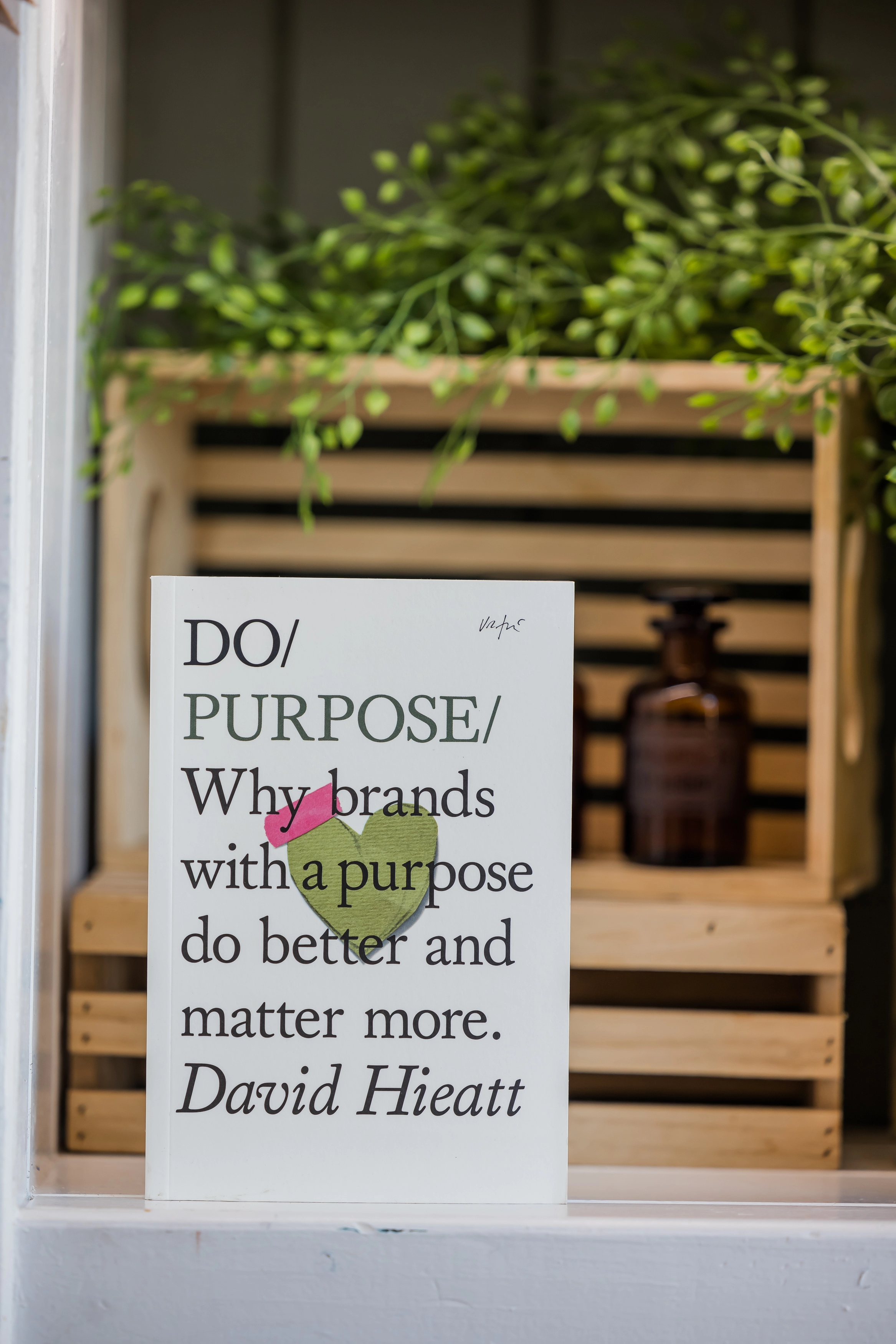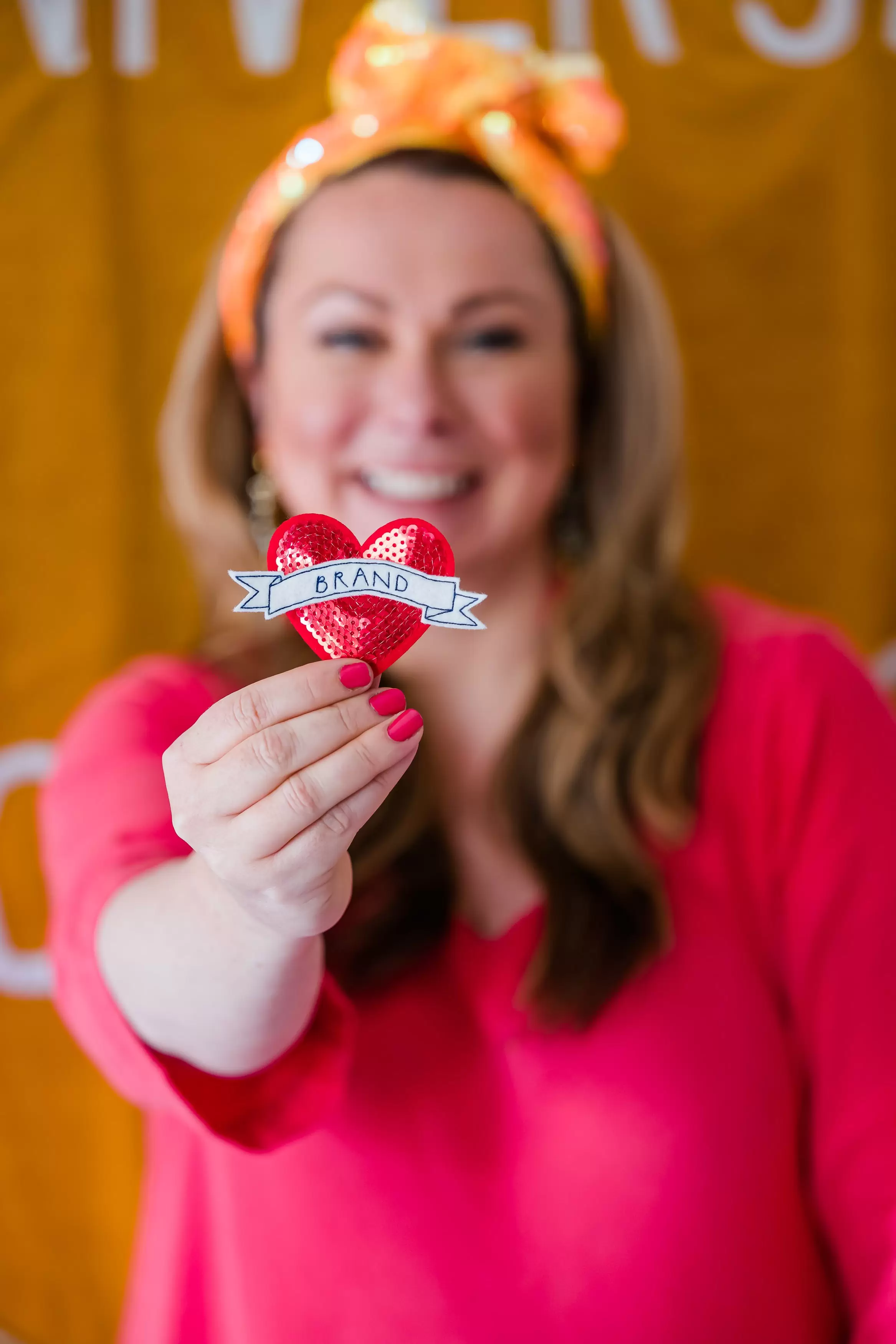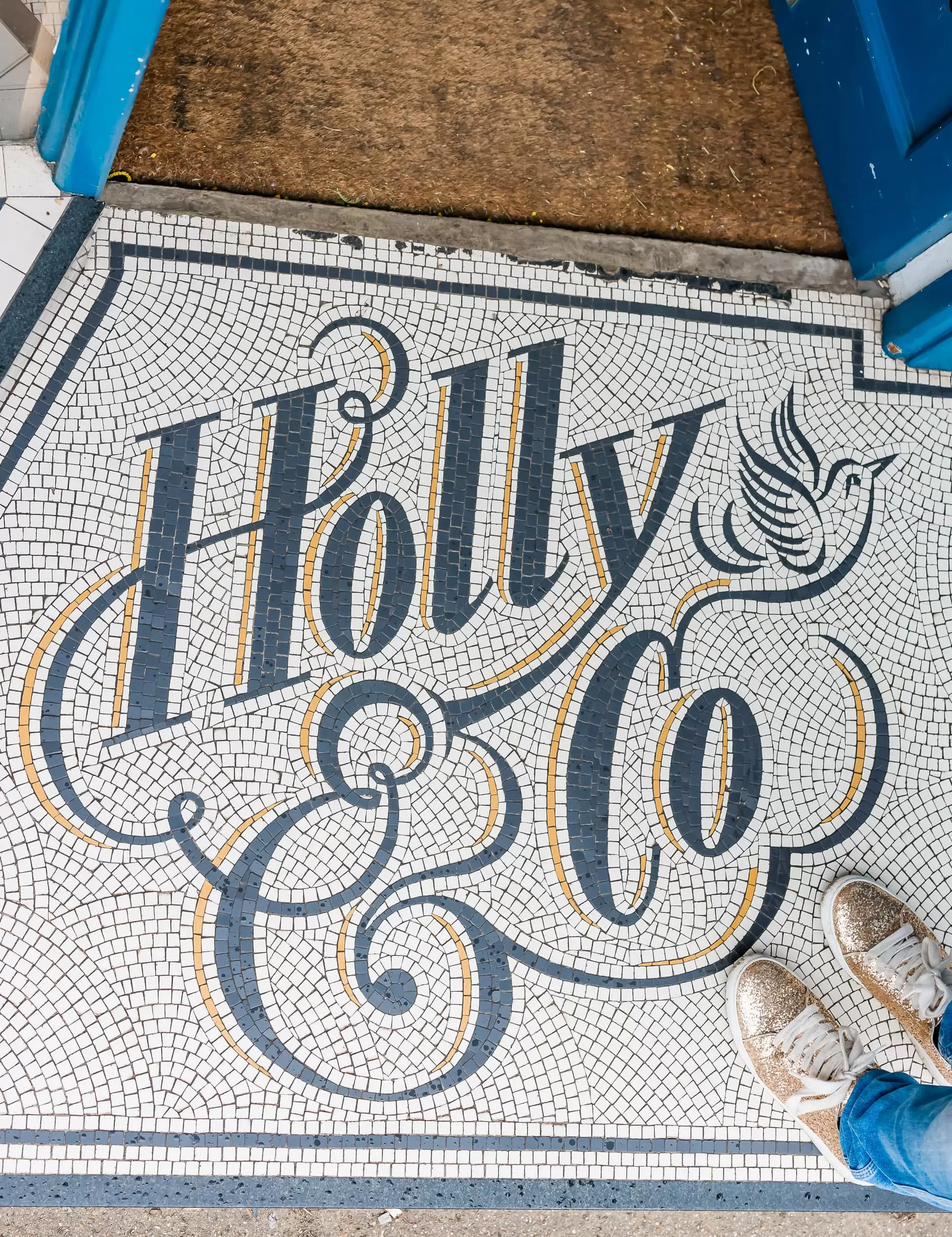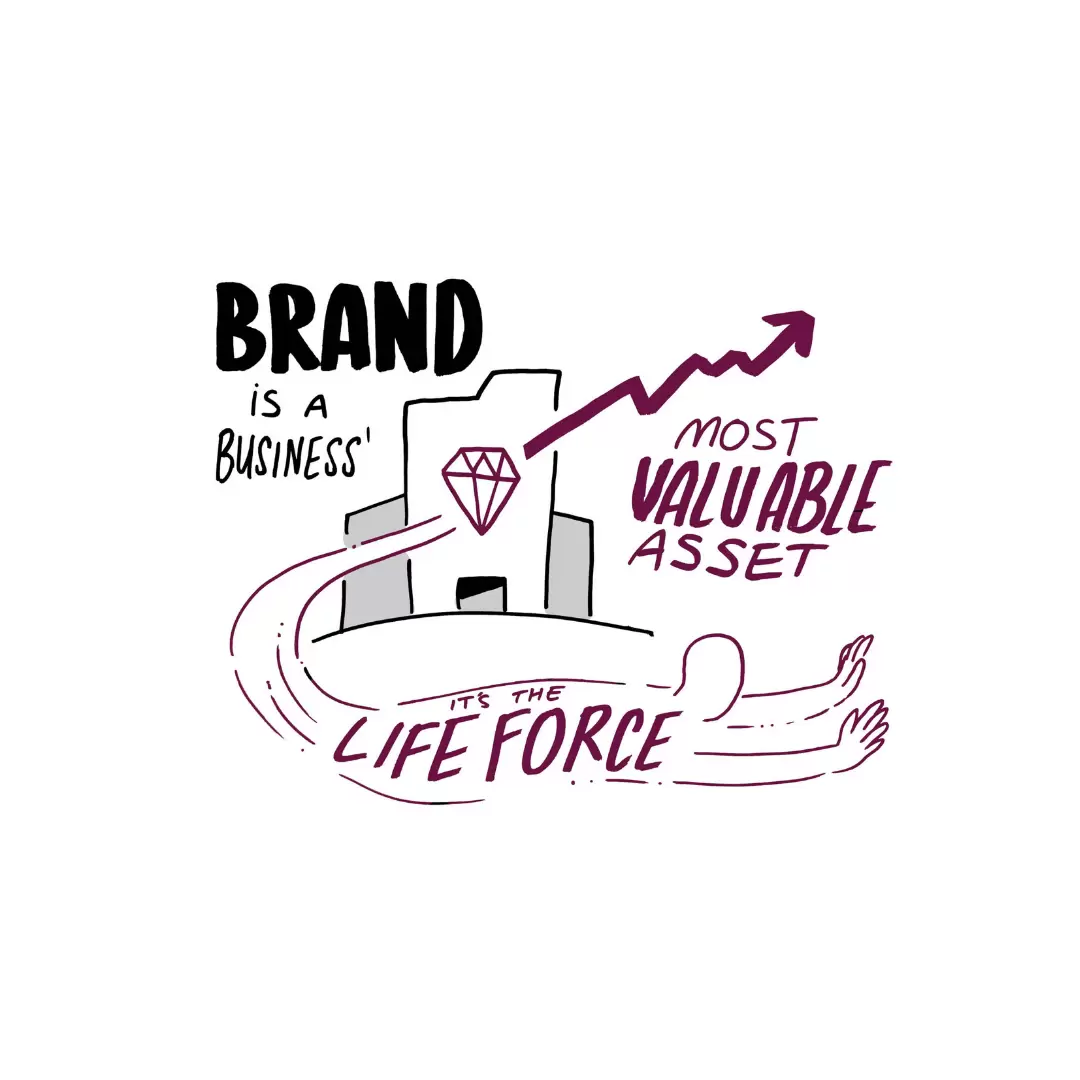

How to create a brilliant brand (and why it’s so important)
29TH MARCH 2023
I truly believe that brand was the key to the success of my first business baby — notonthehighstreet — and I know it’s been the lifeforce behind what we’ve built at Holly & Co, too. Read on, as I share these experiences and offer my take on why you should make your brand the beating heart of your business.

Why brand in business matters: here’s my take on it
Many times in my career I’ve had to become the defender of the ‘B’ word — brand. You see, for some, it doesn’t carry the same weight as the things you can neatly track and stick into a spreadsheet. It’s invisible much of the time and so can be overlooked; its importance undermined.
Brand lives within hearsay, a recommendation over lunch, a smile, a saved website in a bookmark, a corner folded down in a magazine and so on. But the truth is, those are the actions when your brand is causing a reaction outside of your product or service offering — sort of the holy grail when it comes to business! It's what happens when your brand has created energy bigger than just what it offers.
I like to think of brand as being the living life force (I coined the phrase in the height of Harry’s love of Star Wars!) that sits at the heart of your business, powering everything around it. Let me explain more…
Notes from my first business baby: how brand became vital
As we built notonthehighstreet, my co-founder Sophie and I knew our brand was the most important element which we had to protect at all costs. I remember the many conversations we had about the partners we took on board to join our new venture. You see, we were creating the first curated website (although I didn’t quite realise that at the time!) which meant we would turn away 90% of all the businesses that would apply to sell on our platform. They paid £199 to join and this was the only income we received, seeing as our sales (that is, products being bought through the checkout) were practically non-existent for a long time. We knew we were only as good as the partners we brought on board and that every customer would judge us on our virtual shopping shelves and what we stocked (so to speak).
Protecting your brand at all costs
Now what no one knew, is that at this very point in our personal and business lives, we were in such financial trouble. We were paying staff from our credit cards and cheque books, plus we had such personal financial worries as we’d not paid ourselves in over a year and all this was just not sustainable. We needed those £199 fees more than life itself and the easiest thing to do would have been to allow more small businesses to join — any small businesses — purely to help us survive. But we didn’t. Actually, I do not think it even was a conversation. We knew we had to protect the brand, whatever that meant, and I suppose we would have stood by this even if it meant we failed.
I like to think of brand as being the living life force (I coined the phrase in the height of Harry’s love of Star Wars!) that sits at the heart of your business, powering everything around it.
Fast forward many years and I would say the only reason the business survived so long is because of the deep brand roots which grew then, thanks to the love, care and protection we gave it at the start of its life and in the earliest years. We built a brand that the business knew, as we grew, was sacred — which is why it was so vital to look after it. We allowed the roots to bed in and become strong which allowed a tree to grow; the magnificent tree of notonthehighstreet that was, back then, able to weather many storms thanks to respecting the importance of it. It is the greatest asset a business has.
The role of brand in business today and why it’s crucial
If you look at the world today, I’d say that brands are more important now than they’ve been in the last century. You see a brand is the psychology and science brought together as a sort of promise, and what Kevin Roberts calls the ‘love mark’ as opposed to a trademark. What you create (be it a service, or a product) has life cycles, as we all know — but brand outlives them all. It’s just so much bigger than that and that's the best business advice that exists.
What I learned about having a strong brand
As we built Holly & Co, I had already learnt from a business’s near death experiences, what it meant to the company to have a strong brand. In fact, it was imperative we learnt from the mistakes of my past, but also my deep respect for a company’s identity. We knew Holly & Co would live, and that its life force would burn strong, if we had a ‘cultural movement strategy’ (a plan that works around how the world evolves, how we approach work but that also embodies the movement of art, the sciences and philosophies for instance). I suppose that’s what we did at the time with my first business baby, but there wasn’t such a fancy way of describing it then!
I believe building a brand requires a ‘cultural movement plan’ as opposed to simply thinking of how to amplify the brand alone. A cultural movement strategy can fast forward your brand’s rise to fame thanks to the permission it gives you to do almost anything. You can be involved with other businesses who are unlikely business friends, you can become involved in conversation with depth, collaborate with others and so forth — maximising the power of social media and I suppose technology. The world has changed. People want to align themselves with causes they feel are important and those who stand for something, too.

You see a brand is the psychology and science brought together as a sort of promise, and what Kevin Roberts calls the ‘love mark’ as opposed to a trademark. What you create (be it a service, or a product) has life cycles, as we all know — but brand outlives them all. It’s just so much bigger than that.

We’re loyal to brands, not products: creating a shared vision and purpose
People don’t have relationships with products, they love brands. In a ‘movement strategy’, brands have a purpose which people (us!) can get behind. That life force can allow millions of people to support a community, a vision and a purpose. That’s how we have built Holly & Co and now looking back, how we built notonthehighstreet.
Strawberry Frog’s founder, Scott Goodson, described this brilliantly when he said, “Brands are Russian dolls, with many layers, tenets and beliefs that can create great followings of people who find them relevant. Brands can activate a passionate group of people to do something like changing the world. Products can’t really do that.” Today, brand is what you need to build and then protect. Think of the roots and the tree and imagine your business. Imagine the force of energy that propels out of it. Think of it as the only asset you have, which will see you through it all. Brand is almighty.
Brand in business: key takeaways…
Keep these insights in mind and you’ll soon be on your way to making your business a brand to remember.
1. A brand is a business’s most prized asset:
You should protect it fiercely. Grow the ‘roots’ of your brand and nurture them to make them strong. Then make sure that every business decision evolves from them and never compromise on this.
2. Think of your brand as a promise to your customer:
It’s a mutual respect between them and your business’ identity. Products have life cycles, but a brand outlives them all.
3. Customers are loyal to brands, not products:
The best businesses create a vision and purpose (bigger than themselves) that people want to get behind and be a part of. I wish you all the luck with yours.

Images: Sequin ‘Brand’ badge — by Emma Giacalone, 'Do/Purpose' book, by The DO Book Co
Related content
MORE ARTICLES ON BRAND & PURPOSE

What is ‘Thoughtful Marketing’?

You are your brand — stand out!

The art of creating a magical brand experience

Why B Corp businesses and brands that do good are the future

What makes good brand advertising?

The secret to building a brand

Brands of the future and anticipating future trends

The value of brand; why it’s your most important asset
Be the first to know
Sign up to our emails for brand new small business gift and homeware ideas, as well as the latest creative inspiration, delivered straight to your inbox.
